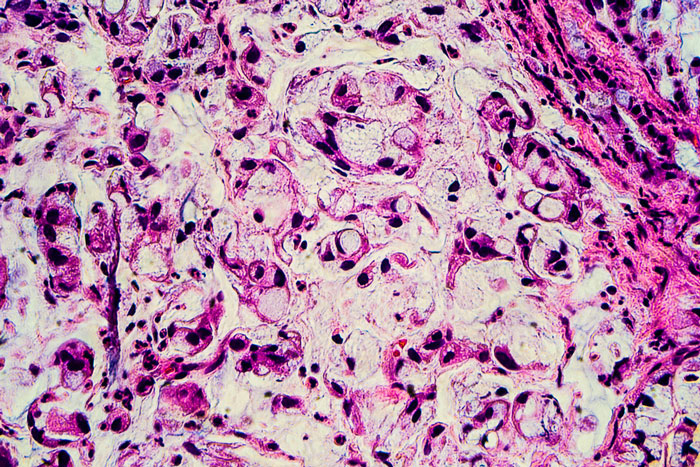Pembrolizumab shows promise in pretreated metastatic gastric cancer
Posted: 8 September 2017 | Dr Zara Kassam (European Pharmaceutical Review) | No comments yet
Pembrolizumab has shown a promising response rate in patients with pre-treated metastatic gastric cancer, according to results from the KEYNOTE-059 trial…


Pembrolizumab has shown a promising response rate in patients with pre-treated metastatic gastric cancer, according to results from the KEYNOTE-059 trial.
The phase II KEYNOTE-059 trail is one of the largest studies to investigate immunotherapy in recurrent or metastatic gastric cancer.
The study included three cohorts:
- 259 patients with metastatic gastric cancer who received the programmed death 1 (PD-1) inhibitor pembrolizumab alone, after pretreatment with two or more lines of chemotherapy
- 25 patients with newly diagnosed metastatic gastric cancer who received a combination of pembrolizumab and chemotherapy
- 31 patients with newly diagnosed metastatic gastric cancer who received pembrolizumab alone.
The primary endpoints were safety (all three cohorts) and objective response rate (cohorts one and three).
After a median follow-up of six months, the investigators found an overall objective response rate of 12% with pembrolizumab alone in the pre-treated patients (cohort one).
Patients who expressed programmed death-ligand 1 (PD-L1) were more likely to respond than those who did not, with objective response rates of 16% and 6%, respectively. Many of the responses were durable.
Grade 3 to 5 treatment-related adverse events occurred in 18% of patients in cohort one and 3% had to discontinue treatment as a result.
Lead author Dr Zev Wainberg, co-director of the Gastrointestinal Oncology Programme, UCLA, Los Angeles, US, said: “The data shows that the tumours were sufficiently shrunk to warrant a response, particularly in those patients who had PD-L1 expression, and the drug was safe. The expected response rate in these heavily pre-treated patients was close to zero so the findings are encouraging.”
In patients with newly diagnosed metastatic cancer, both the combination therapy (cohort two) and pembrolizumab alone (cohort three) were safe and showed some promising activity. “These results have set the stage for a larger follow-up study which is already enrolling patients,” said Dr Wainberg.
Dr Wainberg concluded: “We hope these results, in combination with evidence from ongoing randomised trials, will support the regulatory approval of pembrolizumab in metastatic gastric cancer.”
Dr Ian Chau, consultant medical oncologist, Royal Marsden Hospital, London and Surrey, UK, said: “There is currently no standard of care for metastatic gastric cancer treated in the third line or beyond. The KEYNOTE-059 cohort 1 results confirm that the efficacy previously reported for the PD-1 inhibitor nivolumab in patients from East Asia in the ONO-4538 randomised trial can be applied to Western populations.”
“The likelihood is that pembrolizumab will become a standard treatment option in this setting in the near future,” he added.
Dr Chau cautioned that while the toxicity profile of pembrolizumab looked quite favourable in KEYNOTE-059, it could be that patients had not been treated long enough to experience side effects. He said: “Unlike with chemotherapy, toxicities from immunotherapy tend to occur later on. We need to await longer-term results from an ongoing clinical trial in an earlier line of treatment to know the full impact of this drug in metastatic gastric cancer.”
Dr Chau concluded: “Further research should focus on refining the PD-L1 biomarker and searching for better biomarkers to tell us who benefits from these therapies. We also need more information about the quality of life which should be provided by ongoing studies.”
Related topics
Clinical Development, Clinical Trials, Drug Development, Drug Safety, Drug Targets, Research & Development (R&D)








